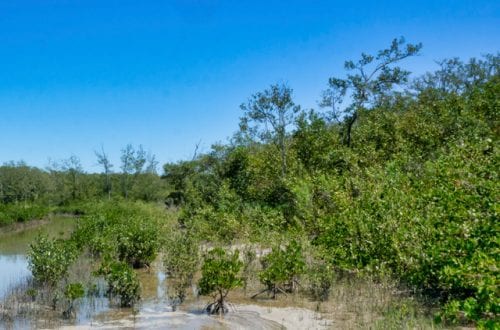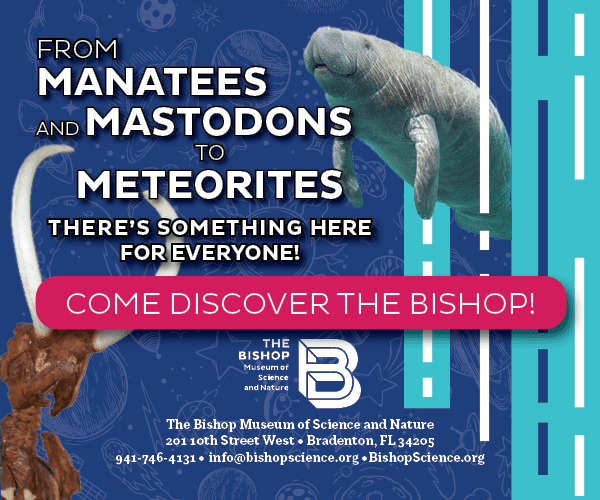On Tuesday, Jan. 14, I attended an advance screening of the documentary, “Kiss The Ground,” based on the novel of the same name by Josh Tickell. The screening previewed at the newly remodeled Bishop Museum of Nature and Science, formerly the Bishop Planetarium in downtown Bradenton.
I‘ve anticipated the release of the documentary since I read the novel in 2018 and heard Tickell speak at New College, his alma mater, last year. The movie’s executive producers are Woody Harrelson and Jason Mraz. Kiss The Ground is directed by Tickell and his wife Rebecca. The screening was made possible with the generous support of local philanthropist Elizabeth Moore and her daughter, Grace. The showing began with an introduction by Grace Moore, a millennial, and perfectly set the tone. Moore voiced the challenges her’s and future generations are facing and how the message of the documentary gives them hope.
The biopic makes the compelling and hopeful case (in their words) “how the food we eat can reverse climate change, heal our bodies & ultimately save our world,” examines regenerative agriculture and clarifies the relationship of our current agricultural practices to excess carbon in the atmosphere. I left with a better appreciation of the connection of the health of soil, the plants we eat, our health and ultimately the health of the planet.
While this message has resonated with me since I first read the book, it wasn’t until a few days after the screening that I fully appreciated the connection between what we’re doing locally to protect and enhance local waters and the message of the movie. The excess carbon released by the use of fossil fuels in less than two hundred years that is fueling global warming is also impacting the waters that surround us. It’s estimated that if the oceans hadn’t absorbed much of this excess carbon, temperatures might already have risen much more.
Unfortunately, this comes with some significant downsides to the health of the oceans and their ability to sustain life. This makes a compelling case for protecting and restoring mangroves (which sequester more carbon that an equal area of rain forest), and restoring clams to bay waters (which sequester carbon in their shells). Initiatives like the Sister Keys and Sarasota Bay Watch and their clam restoration project provide ways people can make a difference in their own “backyard.” Since the mitigation effort on the Sister Keys was completed in 2007 there are acres of new mangroves in the created wetlands. Sarasota Bay Watch, thanks to the support of local volunteers, businesses and a generous grant from the Charles and Marjory Barancik Foundation are on track to release 1 million clams into the bay in 2020.
There is no doubt that the challenges that we face are daunting but change is possible and time-critical. “Kiss The Ground” illuminates the stark nature of the problem but provides a hopeful scenario for those that care about and work for future generations. We owe it to those that follow to protect these resources so that they might have some of the same opportunities that we have. I don’t think it’s an overstatement that this rises to the level of a “Moral Obligation.” Change is possible and this book and documentary paint a hopeful solution. All we need to do is make our voices heard and act!
Related coverage
































